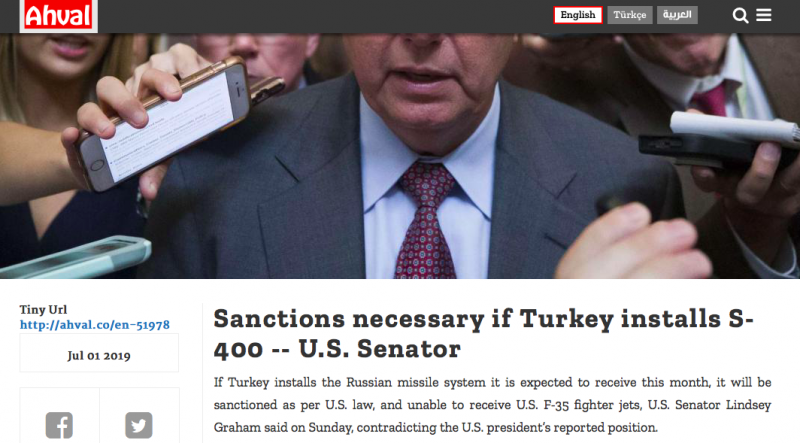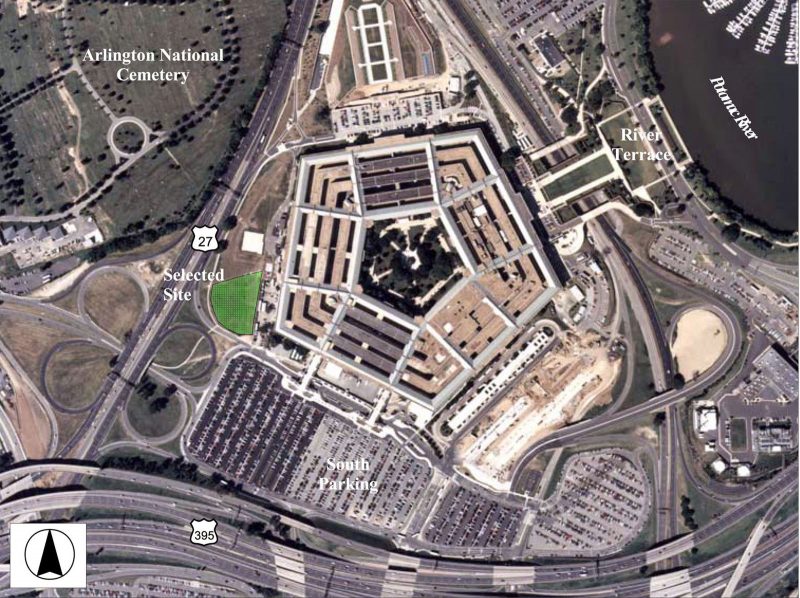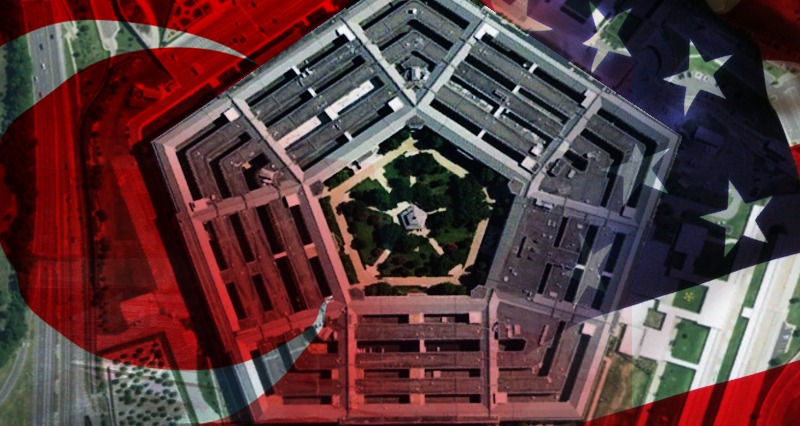In his book “On China,” Henry Kissinger explains the differences between Westerners and the Chinese in their approaches to strategy by comparing Chess and Wei qi (also known as “Go”):
“If chess is about the decisive battle, Wei qi is about the protracted campaign. A chess player aims for a decisive victory, a Wei qi player seeks for relative advantage. In chess, the player is always able to see the strength of their opponent, all the pieces are placed on the board. The Wei qi player must evaluate the opponent’s other pieces as well as the pieces placed on the board (…) Chess heads toward considering one thing and Wei qi produces strategic flexibility.”
After the delivery of the S-400 missile defense systems, there have been increasingly frequent articles in the press regarding contradictions between Turkey and the US, as tensions between the long-time allies remain high.
While US President Donald Trump has been moderate in his statements about Turkey, the Pentagon and the US Senate are threatening them in military, economic and political terms.

Contradictions and confusion
In Turkey, those who believe that the contradictory statements coming from the US are a sign of confusion, are in the majority.
Politicians, soldiers and diplomats believe Turkey can use these cracks between US institutions to their advantage.
In evaluating the situation and developing an appropriate response, strategists must ask themselves: Does the US still think like a chess player, or, is it now more like a Wei qi master in its approach to the ongoing confrontation with Turkey and Russia?
Kissinger is known to have been interested in the Chinese-style political approach and has had a strong impact on the Trump administration’s foreign policy.
Behind the US’s approach towards Turkey, which seems contradictory to us today, it is highly probable that efforts are being made behind the scenes to direct Ankara’s perception with various multi-vector approaches rather than inter-institutional conflicts.
Without understanding this, we can only see the Pentagon’s twice canceled press release regarding the S-400 purchase as a result of confusion. Especially considering that Trump’s outlook seems to be in direct contradiction to the Pentagon’s.
Of course, there are real differences between the US institutions’ approaches in a formal sense, but these differences do not result in contradictions in principle.

Defense.gov
The US has reached some clear conclusions, which are perhaps best summed up in Lieutenant General Benjamin Hodges’s statement which has readily appeared in the Turkish press:
“We must act considering the term after Erdogan. Version 1.0 of Turkish-US relations will probably break down this summer. We need to start thinking about Turkish-US relations 2.0 version and life after Erdogan (…) We can not dare to lose Turkey.”
Statements from former NATO commander-in-chief General James Stavridis were also rather explicit: “Losing the country with the second-largest army in the Alliance would be a huge geopolitical mistake.”
The conclusion is obvious: the US wants to prevent a rapprochement between Ankara and Moscow and thus is refraining from taking steps that would cause them to completely lose Turkey.
The United States’ Strategy in Turkey
Even if the White House and the Pentagon appear to be contrasting with each other in form, we can assume that, in essence, the US is united in its attempts to bring Turkey to its knees, and that it is using three major strategic approaches.
1- No burnt bridges
Immediately after the shipment of the S-400s, the release of Halkbank’s Executive Vice President Mehmet Hakan Atilla and Trump’s positive remarks on the Turkish government can be considered measures of reproach.
Washington, by keeping its channels open with Turkey, will take steps to ensure there is a chance to pull Ankara back into its axis in case of possible disputes between Russia and the AKP. At this point, in Syria (which could be described as the Achilles’ heel in relations between Turkey and Russia) the US will likely create provocations to force confrontation between the two countries.
2- Strategy to defeat the AKP domestically
While targeting the AKP in the upcoming period, the US will support other political forces and segments of the society in Turkey, especially their opponents.
Within the framework of this strategy, various initiatives to weaken the AKP, including the creation of new parties, will be accelerated. The outputs of Ahmet Davutoğlu and Ali Babacan can be evaluated in this context.
By separating the AKP from the rest of Turkey and surrounding it, without compromising the relations with other forces and institutions in Turkey, the US is attempting to overthrow the ruling party in favor of a party more amenable to its interests.
3- Sieging Turkey from inside and outside
The US is attempting to influence Turkish policies through supporting internal opposition movements, and by mounting pressure from abroad.
In domestic politics;
– Provocations via Syrians residing within the borders of Turkey. (News reports regarding the plight of Syrians living in Turkey get extensive coverage in the US and Israeli press)
– Defamation and isolation operations against anti-US elements within the AKP and among their opponents.
– Media manipulation, where pro-western press pushes US’ interests and dissuades the population from accepting closer relations with Russia (Such as the anti-Russian campaign launched in social media and press after S-400s).
In foreign politics:
– Isolating the AKP by branding Turkey as a dictatorship in world media.
– Preventing direct relations between Turkey and the Syrian government by funding terrorist groups and organizing provocations.
– Preventing Turkey from forming alliances in the Mediterranean.
– Supporting the PKK / YPG / SDF and similar groups, allowing them to continue their conflict with Turkey (the US continues to offer logistical and intelligence support to terrorist groups in the region).
– Disrupting Turkish influence in areas like northern Iraq and autonomous Kurdish regions (attacks on Turkish diplomats in Erbil).
The US’ strategy can be countered with the correct tactics
Kissinger’s comparison continues:
“Chess teaches Clausewitzian’s center of gravity and the resultant moves; the game usually begins as you fight for the center of the game board. Wei qi teaches the art of strategic siege. A skillful Wei qi player gradually reduces the strategic strength of his opponent’s pieces while a skillful chess player aims to eliminate his opponent’s pieces in a series of hand-to-hand collisions.”
The US has employed a Wei qi player’s strategy towards Turkey, trying to conduct a siege on several fronts at once, seeking relative advantage over decisive blows.
A single response to this multi-vector siege will not be sufficient.
Turkey has a great deal of space to make its counter-moves, based on history and reinforced with economic channels reaching from Algeria to Pakistan.
The game can be easily won by those who know how to place the stones correctly.

















Leave a Reply